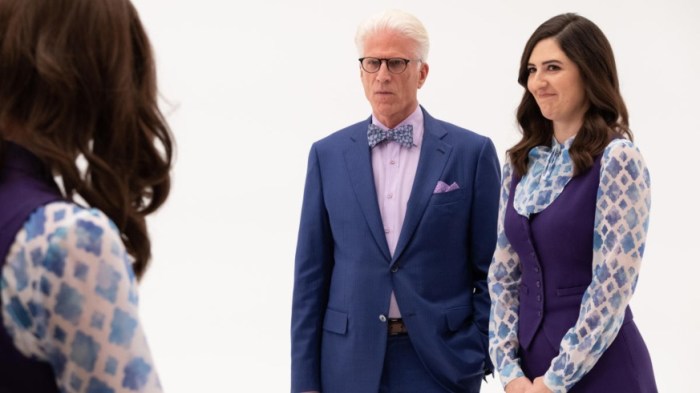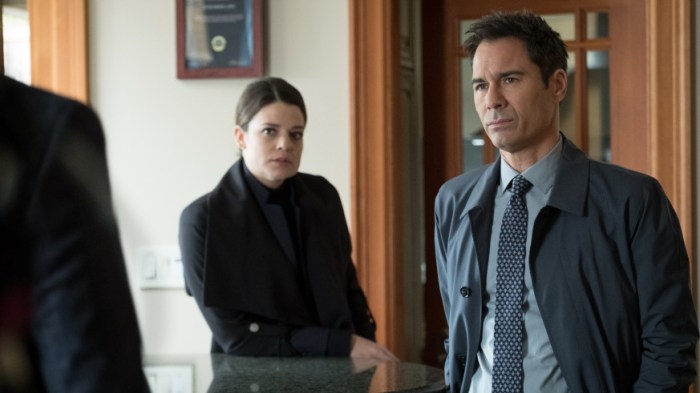‘David Brent: Life on the Road’ His laugh is higher-pitched, more pathetic, but otherwise he’s the same. Since the original, British and best “The Office” ended in 2003, David Brent — manager, singer-songwriter, well-meaning toad, the prized stallion of his creator, Ricky Gervais — has made the odd appearance. But the movie “Life on the Road” is his first full-on solo vehicle. It’s a chance to catch up with a character you love to love-hate as he drifts further into middle age. Have the years made him wiser? Of course not. At the end of the two Christmas specials in 2003, he’d grown wise to the bullying of “friend” Chris Finch, developed some self-awareness, gotten a date. Maybe one of television’s most well-meaning monsters had turned a page? Alas. Within the first two minutes of “Life on the Road,” David unthinkingly “jokes” with a coworker who brags of losing weight that she’s still “not a stunner.” He’s still a traveling salesman, still always “on,” still “performing” to the blank, horrified faces of coworkers and strangers. And he’s still nursing undying dreams of breaking into the music business. If anything he’s more alone than ever; he’s the only alum of the original, British “Office” who appears in “Life on the Road.” He never made up with Finchy. Martin Freeman’s Tim is a hobbit now. Whatever happened to the wonderful Lucy Davis? RELATED: Interview: Michael Cera on “The Lego Batman Movie,” cinephilia and smartphones Far as bringing back a beloved fictional cretin goes, “Life on the Road” has an up on “Alan Partridge: Alpha Papa.” That film found Steve Coogan’s own deathless creep — such a major inspiration on David Brent that he might as well be his dad — caught up in a lampoon thriller. It’s a funny film, but the best jokes were Partridge asides, not the plot. It might have been better to go the route taken by “Life on the Road.” It stays grounded, having him light out on his very first tour, which, in classic Brent fashion, is really “seven or eight shows over two weeks.” His “band” is a bunch of young guys he pays out of pocket, all of them visibly downcast from selling their soul for cash. None of them like him. They don’t like his songs, which, as ever, sound like Mellencamp knockoffs collecting dust since 1986. His idea of being cool and young is putting on a pair of dark shades and saying, “We’re gonna get a little bit funky.” Like Alan Partridge and Steve Coogan, David Brent is a character Gervais could play till end times. Gervais knows this guy all too well, and David’s unstuck-in-time quality is a plus, not a depressing minus. Still, he’s not revealing anything he hasn’t before. He’s still a progressive who’s still a minor bigot; he’ll write songs about the importance of helping the disabled and fighting intolerance, all while rattling off lazy racial stereotypes that haven’t been in play since the Reagan era (although maybe the Internet’s legion of Pepes will bring them back?). He still means well and really only alienates people by pretending to someone he’s not, someone who no one likes: an “entertainer,” relentlessly firing off bad jokes. He means to be loved only to come off as needy, overbearing, oblivious to the discomfort he causes in others. (No one character has ever employed so many “straight men” performers.) You could argue that that’s the point, pointing to the grim maxim that people never change. They may try, even make in-roads to betterment, but they always backslide. Still, Gervais could have given us something else. Steve Coogan has made the latter day iteration of Alan Partridge the same as before but subtly different. He’s still a boob, but he’s no longer as comfortable in his bigotry, always checking himself in our progressive times. And that’s funny, too, watching him act aloof and a bit lost in an era he doesn’t quite understand. When David Brent writes songs about Native Americans (with lyrics lifted wholesale from Wikipedia entries), it’s something he would have done circa the third episode of “The Office” (the one with the song that ends with him saying, “Racial, so…”). “Life on the Road” winds up flubbing one of its best, richest ideas: What is David Brent like in the age of social media, when every single human seeks 15 (or, more likely, five) minutes of fame, when the music industry is dying? Considering what an avid Twitter user he is, it’s surreal how rarely modern tech finds its way into his work. In last year’s listless “Special Correspondents,” Gervais played a journalist in a world where everyone still read newspapers. No one walked around with smartphones glued to their palms. So it goes here, in which David Brent never drives his band onto the information superhighway, where they’re still trying to make it by playing shows, competing in Battles of the Bands and appearing on radio shows. Still, we should note that “Life on the Road” remains generally delightful — a significant improvement over “Special Correspondents,” as well as such curious flubs as “The Invention of Lying,” the period piece “Cemetery Junction” and the second season of “Derek,” which retroactively made the pleasant first seem like concentrated Kryptonite. Gervais has experimented with other personas before — grouchy but decent Andy Millman on “Extras,” mean host on the Golden Globes — but David Brent is the only one you could see catching up with every decade or so. We might even forgive Gervais his noted and epic soft spot. After some 70 minutes spent mocking his most famous characters’ hang-ups, inanities and peccadilloes, “Life on the Road” takes a shocking u-turn. Turns out everyone liked him after all! Even the band members who would only agree to a post-show drink if he not only paid for their beers but also their time come around. The last stretch is an avalanche of the warm-and-fuzzies. Ernst Lubitsch used to pull these tonal switcheroos this all the time; they called it “the Lubitsch touch.” Gervais is no Lubitsch. He was circa the “Office” Christmas specials, when merriment and happy endings followed some eight hours of nerve-scraping humiliation comedy. David Brent may be the same, but that Gervais is long gone. Follow Matt Prigge on Twitter @mattprigge
Director: Ricky Gervais
Stars: Ricky Gervais, Doc Brown
Rating: NR
3 (out of 5) Globes


















